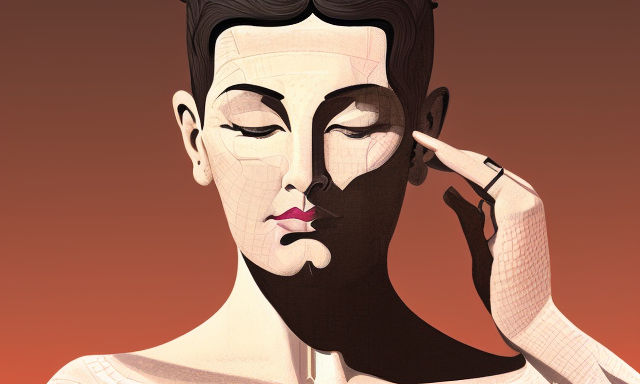List of Stress Types
Stress is a condition of anxiety or tension caused by a variety of things, such as events, situations, or people. There are different types of stress, including acute, chronic, and psycho-spiritual. This article will give you some basic information about these different types of stress. You can choose to learn about them in more detail by reading on. Listed below are some common types of stress. This list can help you determine which type of stress you are experiencing.
Chronic stress
If you are experiencing chronic stress, it is important to learn how to deal with it. While the early signs of stress are often not harmful, chronic stress can lead to health issues such as trouble sleeping and concentrating. It can also lead to increased levels of irritability, frequent illness, and difficulty sleeping. Lifestyle changes can help you cope with chronic stress, as can regular physical activity. Learn how to relax and practice relaxation techniques to combat the effects of stress hormones.
Studies show that exposure to trauma during childhood contributes to chronic stress in adulthood. In fact, more than half of Americans have been exposed to at least one of these experiences. APA estimates that more than one in six adults has been exposed to at least two of these experiences. According to the American Psychological Association, a majority of people who are exposed to stressful situations feel more anxious and tense than those with less stress. Likewise, 75% of doctor visits are caused by stress.
Fortunately, our body is good at handling acute stress. The stress hormones released by our bodies make us more alert. These chemicals also increase our heart rate and blood pressure. These short-term reactions to stressful situations are our bodies’ way of protecting us. However, chronic stress can lead to health conditions. When it is not treated properly, chronic stress can actually worsen existing health conditions and lead to the development of new ones.
Fortunately, the American Medical Association has acknowledged that people who suffer from chronic stress often have symptoms of depression, high blood pressure, and poor sleep. The American Medical Association also acknowledges that depression and anxiety are connected. People with chronic stress often disregard these symptoms because they are so used to the symptoms. Chronic stress causes physical and mental breakdown and can be very difficult to treat. It can cause depression, physical symptoms, and even the onset of heart disease.
Situational stress
Situational stress occurs when you can’t control your emotions or react appropriately to a situation. It can include conflict, loss of acceptance, or status. For example, you might be laid off or make a critical mistake in front of your team. In order to deal with situational stress, you need to become more self-aware and recognize the automatic signals that make you react in an unhealthy manner. If you feel this way, it’s time to seek professional help.
The best way to deal with situational stress is to build a better sense of emotional intelligence. This is possible through meditation or other similar practices. Similarly, addressing personal fears can help reduce anticipatory stress. Situational stress is also caused by a lack of confidence or support. However, it can be reduced through addressing personal fears or by preparing answers to questions ahead of time. It is important to remember that conflict is one of the main causes of situational stress.
The best way to handle situations is to understand the source of the stress and act accordingly. Leaders must remain approachable, remain accessible, and help their employees overcome their stress. Listening to podcasts is an excellent way to stay up-to-date on hundreds of fascinating topics. You might also want to check out the “Connected Leadership” programme, which provides managers with the tools they need to lead healthy teams.
Exposure to stressful situations should be limited and manageable. People who experience episodic acute stress often feel overwhelmed and rushed. They live chaotic lives and are often subject to a lot of demands. If this is a common occurrence for them, it can lead to chronic stress and other problems. For those with chronic stress, recognizing it and learning to cope with it is key to avoiding further damage. They should practice relaxation techniques whenever possible to keep from getting overwhelmed.
Psycho-spiritual stress
There are many symptoms of physical stress that can occur during traumatic situations. People may experience a range of physical ailments, including insomnia, heart problems, and tension headaches. Physical stress can also result in social and reproductive problems, such as severe attacks of type 2 diabetes and high blood pressure. Some people may experience depression or lose their interest in sex. Psychosocial stress can lead to issues related to relationship/married life, lack of social support, and a diminished sense of well-being.
Some of the signs of acute stress include being irritable and insensitive. People may feel tense and anxious about things that do not concern them. They may even become insensible and irritable. Some people may even feel the need to blame others for stressful events. These symptoms can be difficult to identify, but proper treatment can help people recover. The effects of physical stress on the body are often difficult to diagnose, but the symptoms can range from migraines to persistent headaches to gastrointestinal disturbances.
Chronic stress, on the other hand, can be difficult to recognize and identify. It often involves repeated, ongoing stressful events. People may experience chronic stress due to a single stressful event that continues to linger in their mind. Chronic stress, while more severe than acute stress, may be a life threatening condition. It can cause high blood pressure, ulcers, or even cancer. It can also cause a person to live a miserable life and may require medical treatment and stress management.
There are many different types of stress. There are mental health conditions and physical problems related to work, relationships, and the environment. Sometimes people may mistake anxiety, depression, and nervousness as symptoms of acute stress, but they are not the same. Psycho-spiritual stress is often a result of internal perceptions, not external events. It can even be caused by the negative thoughts a person has.
Acute stress
Acute stress is a common and relatively short-term form of anxiety. It comes from a variety of sources, such as a traumatic event, a job rejection, or a fight with a loved one. While it can have physical effects, acute stress is usually short-lived and less severe than chronic stress. In many cases, people use acute stress as a way to stay motivated, complete tasks, or cram for an exam.
The primary causes of acute stress are situations involving immediate or unexpected threats. People can experience this type of stress as a result of close calls or speaking in front of a large audience. These events may cause a wide variety of physical, mental, or emotional symptoms. While the effects of acute stress are not long-term, they do have a noticeable effect on a person’s health. Fortunately, there are simple techniques that can help people cope with acute stress without negative health consequences.
While both chronic and acute types of stress can affect a person, there are some ways to reduce the occurrence of these events. While acute stress is usually triggered by a traumatic event, it can also be the result of ongoing situations or structural factors that affect the body. Chronic stress is more severe than acute stress, and requires the use of medications. Ultimately, the best way to deal with acute stress is to learn to manage the causes and reduce its effects.
Chronic stress is similar to chronic pain and illness, except that it lasts longer. Chronic stress can be caused by many factors, including poor work environments, abusive relationships, and other circumstances. Symptoms of chronic stress can be physically and mentally debilitating and can even lead to cardiovascular and metabolic problems. There are ways to mitigate chronic stress, but you should also talk with a doctor about managing your symptoms. It is important to keep yourself healthy, and you should never let your stress dominate your life.
Episodic acute stress
People who experience episodic acute stress are those who have episodes of intense anxiety, worry, and irritability that come and go. They often seem disorganized and in a hurry, and may even have a hostile or angry demeanor. Episodic acute stress can interfere with normal functioning and decision-making. People with episodic acute stress often don’t feel the need to seek professional help for their symptoms.
Because of the stigma surrounding mental health issues, many people try to avoid seeking professional help. But the reality is that chronic stress can lead to uncontrollable low moods and adverse effects. It’s imperative to accept treatment and open up about your personal life to protect yourself and your family. In addition to therapy, episodic acute stress can sometimes be treated with medication and lifestyle changes. For more severe cases, patients may be forced to leave their jobs.
While episodic acute stress can be beneficial, it’s important to note that the symptoms of this type of stress are often more severe than those of chronic stress. The weakened immune system can result in more frequent colds, allergies, and other illnesses. Some people may experience irritable bowel syndrome and high blood pressure. For chronic stress, it’s essential to seek professional help. For severe episodes, medications may be needed to reduce symptoms or treat the underlying cause.
Although episodic acute stress is temporary, chronic episodes of this type are destructive. Chronic stress results when a person is continuously exposed to a stressful situation, and has no way of finding a way out. The victim may feel trapped and stop trying to find a solution. Overtime, chronic stress may lead to desensitization. People with chronic acute stress may become desensitized to the stress and ignore the symptoms.








